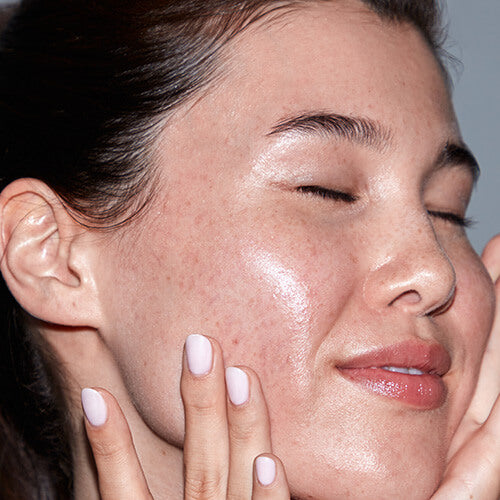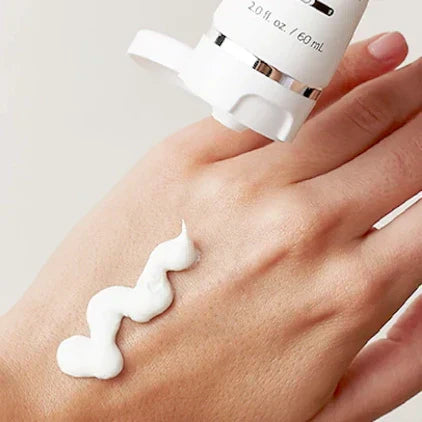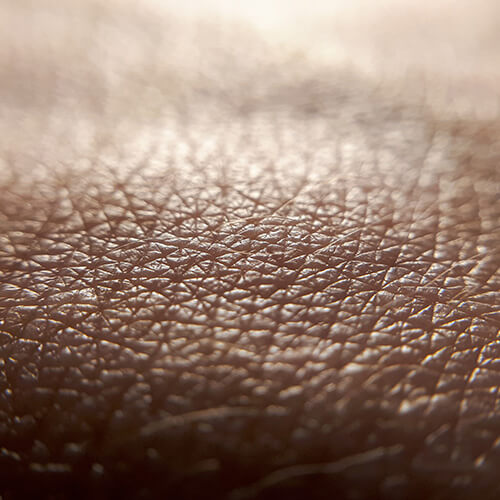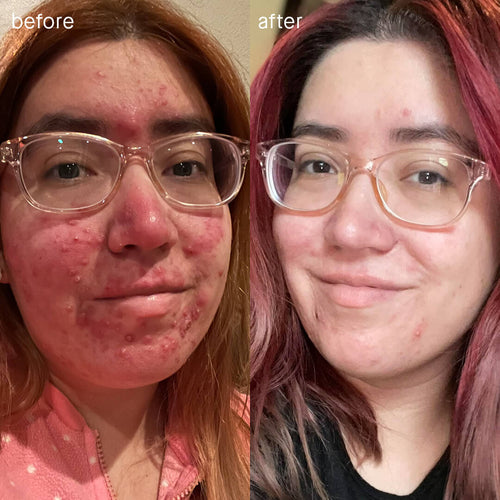
What Is Skin Fasting? Dr. Pimple Popper's a Fan
Our founder, Dr. Sandra Lee, weighs in on the trending practice of drastically paring down your skincare routine.
Published:
4 minute read
In the skincare space, there’s no shortage of crazy-sounding social media trends. But one that’s been picking up speed since the shelter-in-place days is skin fasting. If the name alone has you breaking a sweat, don’t panic: it’s not that bad.
In fact, says our founder and favorite dermatologist, Sandra Lee, MD (aka Dr. Pimple Popper), this trend can be very good — in the right circumstances. Read on to learn why she recommends skin fasting.
Article Quick Links
What is skin fasting?
Also commonly known as a skincare detox, skin fasting is just what it sounds like: a break from all (or most) of your skincare products. Though the timing varies, most skincare fasts last anywhere from a week to a month. The goal is to allow your skin to restore its natural balance and heal itself without the help of external products.
What are the benefits of skin fasting?
Abstaining from skincare can be a daunting task, so it better be worth it, right? “I think skin fasting is great,” says Dr. Lee. “In fact we recommend a sort of fast, for people to stop all products they use on their skin, when they are having a skin rash that we think is a reaction to a product (allergic contact dermatitis or irritant contact dermatitis).
That’s just one of the many benefits of a skincare detox:
- Allows your skin to breathe
- Restores skin’s natural balance
- Helps identify products causing irritation or allergic reactions
- Saves money by reducing the number of products you use
- Can be a good way to pare down an overly-complicated skincare routine
Can skin fasting be bad for you?
In most cases, taking a break from your skincare products isn’t going to hurt you, but it’s a good idea to check first with your doctor — and a must if you’re being treated for a skin condition. Some of the potential side effects from skin fasting include:
- Dryness
- Flakiness
- Oiliness
- Other skin changes
If you’re thinking about skin fasting, it’s likely you’re wondering: Do I have to go cold turkey? “Fasting is great — but just like you may do that with food, it doesn't mean you necessarily forego everything completely,” says Dr. Lee. “You go to just the bare minimum or the basics.”
Who should try skin fasting?
While skin fasting may not be suitable for everyone, it might benefit certain skin conditions. Here are some clues that a skin detox might do you some good:
- You use a lot of products and are experiencing irritation, dryness or sensitivity
- You’re breaking out and you suspect a pore-clogging product (or your makeup)
- Your skin is producing excess sebum due to over-cleansing or over-moisturizing
- You’ve developed eczema or dermatitis and you’re not sure why
How to do a skin detox
Here are some tips to get started on a skin fast:
- Choose a time frame that works for you (aim for at least a week, up to a month or so)
- If it’s too daunting, step down gradually, starting with non-essential products like toners or serums.
- Keep using essential products like cleansers or sunscreen, but opt for simpler formulas with fewer ingredients. Try: SLMD Salicylic Acid Cleanser, Dual Defender SPF 30.
- Pay attention to your skin's reaction and adjust your routine accordingly.
After the fasting period, slowly reintroduce your skincare products one by one and observe how your skin reacts.
Who should avoid skin fasting
Detoxing from skincare products may not be suitable for everyone. As mentioned above, it’s important to consult with your dermatologist if you’ve got concerns. In general, you should probably avoid skin fasting if you meet any of these criteria:
- You have severe acne or another skin condition that requires consistent treatment
- You have very dry or sensitive skin that might become too irritated or dehydrated without skincare products
- You are undergoing certain medical treatments, such as chemotherapy or radiation therapy, that affect the skin
- You have a history of allergic reactions or skin sensitivities
But just because you have a concern like dry skin or acne, says Dr. Lee, doesn’t mean skin fasting is off the table — in moderation. She suggests that people should use their best judgment when considering skin fasting, and not be too extreme.
“With food fasting, you don't abstain from ingesting water for instance, you don't go without brushing your teeth, or taking your medication for high cholesterol or allergies,” she says. 'Similarly, you shouldn't stay away from a moisturizer especially if you're dry, blotting papers if you tend to be really oily, or an actual prescription topical medicine for your psoriasis or other skin condition, like acne.”

Dr. Lee's Last Word
Skin fasting can be a great reboot for people, and it’s especially useful for pinpointing the cause of dermatitis. I recommend taking your routine down to the bare minimum — don’t stop cleansing or wearing sunscreen, for instance — and pay close attention to how your skin reacts. Get rid of the extra stuff and give your skin a moment to reset.



















